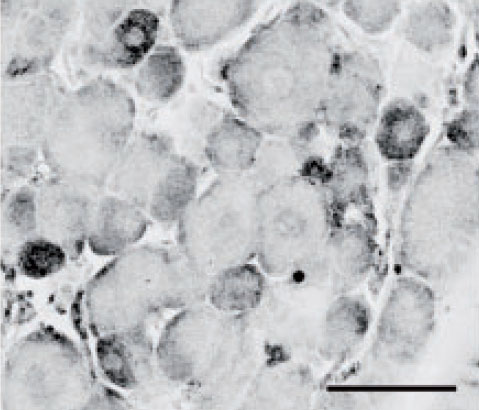Time:2012-03-13
On Jan. 24, 2012, Brain published online a research article entitled "Activin C expressed in nociceptive afferent neurons is required for suppressing inflammatory pain". This work was carried out by postdoc Xing-Jun Liu and colleagues, under the supervision of Prof. Xu Zhang.
Activins, which consist of two disulfide-linked β subunits, belong to a family of the transforming growth factor-β (TGF-β) superfamily. Emerging evidence suggests that members of TGF-β superfamily contribute to pain regulation. The present study shows that the activin C expressed in small dorsal root ganglion neurons is required for suppressing inflammation-induced nociceptive responses. The expression of activin C in small dorsal root ganglion neurons of rats was markedly down-regulated during the early days of peripheral inflammation induced by intraplantar injection of the complete Freund’s adjuvant, as measured by custom microarray assay. Intrathecally applied activin C could reduce nociceptive responses in acute and chronic inflammatory pain, whereas intrathecal treatment with the small interfering RNA targeting activin C or antibodies against activin C could enhance the nociceptive responses, and impaired the recovery from thermal hyperalgesia. Moreover, activin C was found to inhibit the inflammation-induced phosphorylation of extracellular signal-regulated kinase in the dorsal root ganglia and the dorsal spinal cord. Thus, activin C functions as an endogenous suppressor of inflammatory nociceptive transmission and may have therapeutic potential for treatment of inflammatory pain.
The project was supported by grants from National Natural Science Foundation of China, National Basic Research Program of China, and China Postdoctoral Science Foundation.

 附件下载:
附件下载: